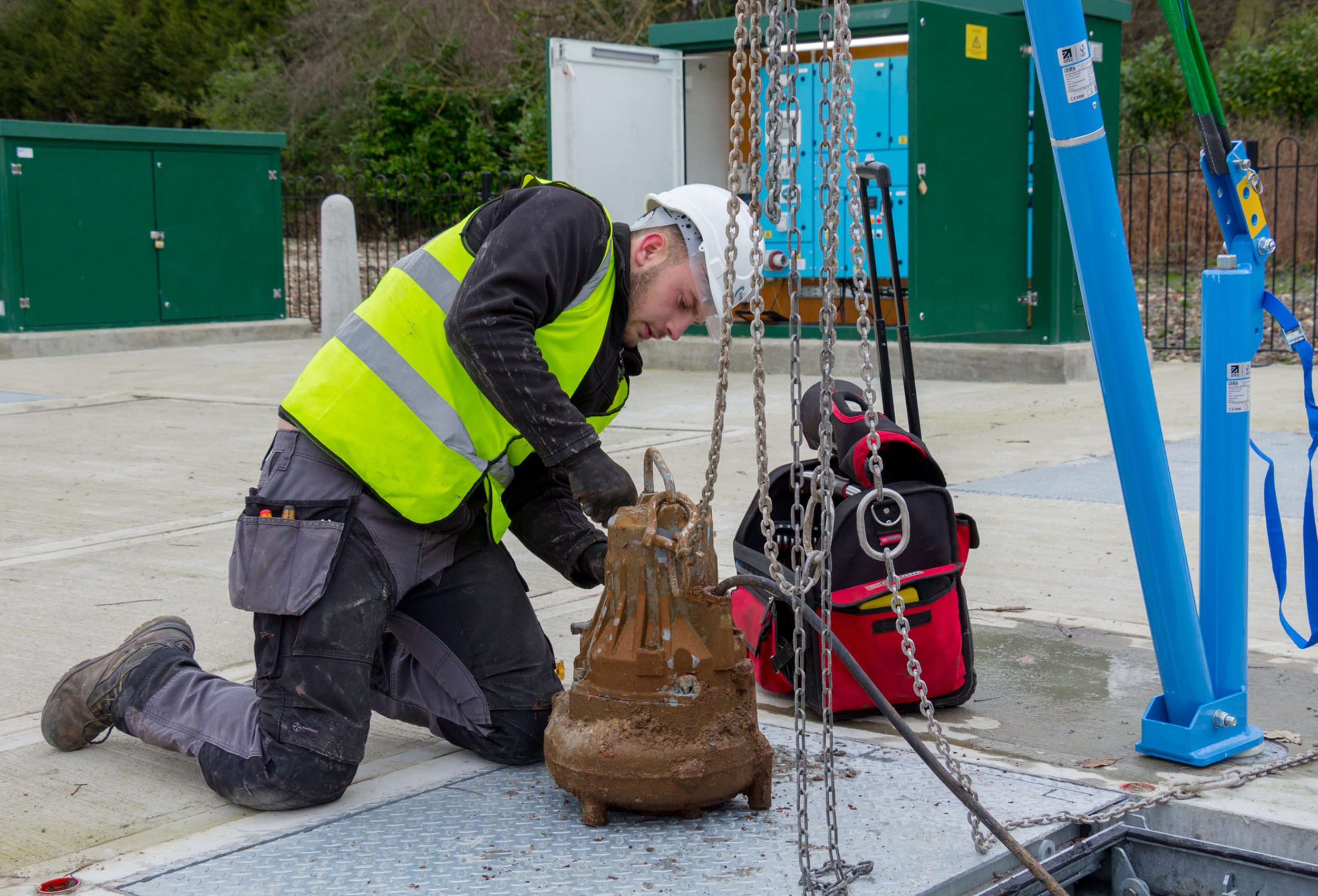How Often Should Pumping Stations Be Serviced?

Keeping Your System Running Smoothly
Pumping stations crucial pieces of infrastructure of our wastewater management systems. They move wastewater from homes and businesses to treatment facilities, keeping our communities clean and healthy. But just like any hardworking mechanical machine, pumping stations need regular maintenance to function at their best.
So, the burning question is: how often should pumping stations be serviced?
The answer, unfortunately, isn’t a one-size-fits-all. Several factors influence the ideal service frequency for your pumping station:
- Type of Pumping Station: Residential pumping stations for single homes typically require less frequent service compared to large municipal stations handling significant wastewater volumes.
- Usage: The amount of wastewater processed by the station plays a crucial role. High-use stations may need more frequent servicing to prevent solids buildup.
- Wastewater Content: The type of wastewater the station handles also matters. Industrial wastewater with higher grease or chemical content may require more frequent cleaning to prevent clogs and equipment damage.
- Manufacturer’s Recommendations: Equipment manufacturers often have service interval recommendations in their manuals. These can be a good starting point, but adjustments may be necessary based on the factors mentioned above.
Here’s a general breakdown of pumping station service frequencies:
- Residential Pumping Stations: Typically serviced every 1 years.
- Commercial Pumping Stations: Serviced every 6 months depending on usage and wastewater content.
- Municipal Pumping Stations: These large stations often have complex systems and may require servicing every 3-6 months, with additional inspections between services.
Beyond Scheduled Maintenance:
While scheduled servicing is essential, it’s crucial to be attentive to your pumping station’s performance. Here are some signs that your station might need immediate attention:
- Unusual Odors: Strong sewage smells could indicate a clog or septicity (lack of oxygen) within the station.
- Frequent Pump Activation: If the pump turns on much more frequently than usual, it could be struggling to handle the wastewater flow, potentially due to clogs or a failing pump.
- High-Water Levels: If the wastewater level in the station rises significantly, it could indicate a blockage or pump malfunction.
- Visible Alarms: Modern pumping stations often have alarm systems that trigger when issues arise. Don’t ignore these warnings!
The Importance of Regular Service:
Regular pumping station service isn’t just about preventing breakdowns. It offers a multitude of benefits:
- Reduced Costs: Early detection and correction of minor issues prevents costly repairs later.
- Improved Efficiency: A well-maintained station operates more efficiently, using less energy to move wastewater.
- Extended Lifespan: Regular maintenance ensures your pumping station functions optimally for a longer period.
- Environmental Protection: Reduced risk of overflows and proper wastewater treatment minimize environmental impact.
Conclusion:
By understanding your specific pumping station needs and implementing a regular service schedule, you can ensure it operates smoothly, efficiently, and protects the environment. Don’t wait for problems to arise – proactive maintenance is key to keeping your pumping station running like a champ! If you are unsure how often you should service you pumping station please contact Advantage Pumping Solutions for guidance.
